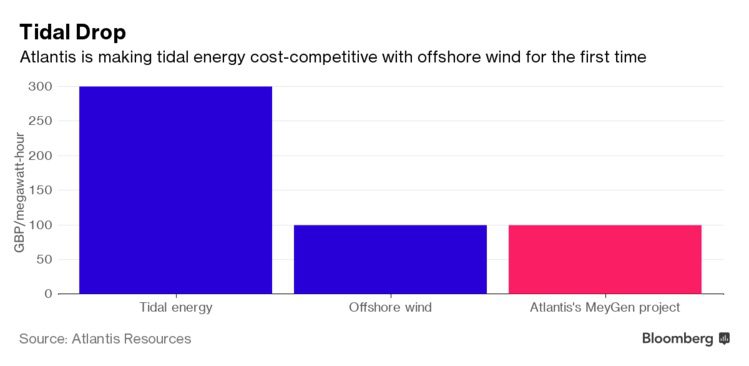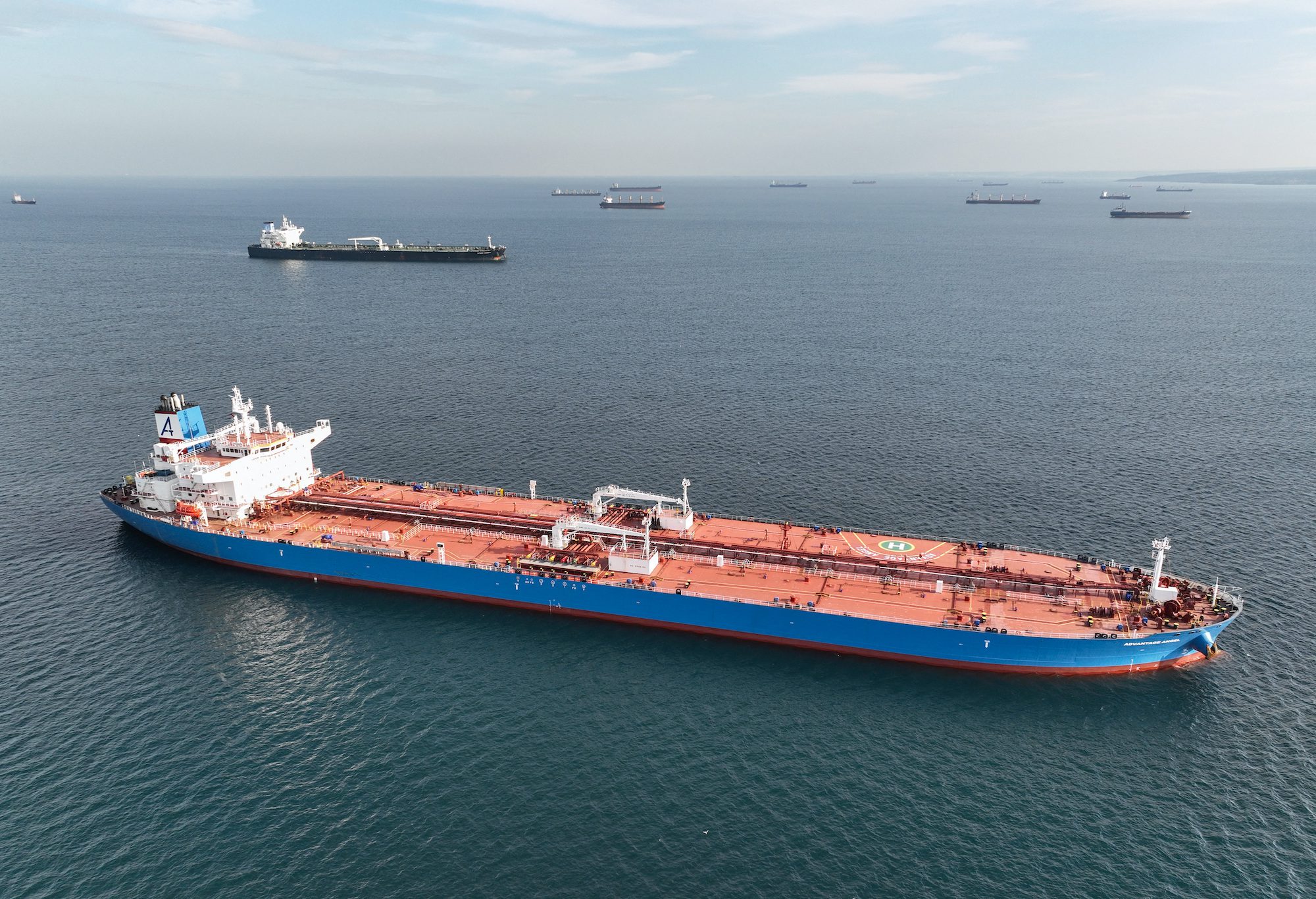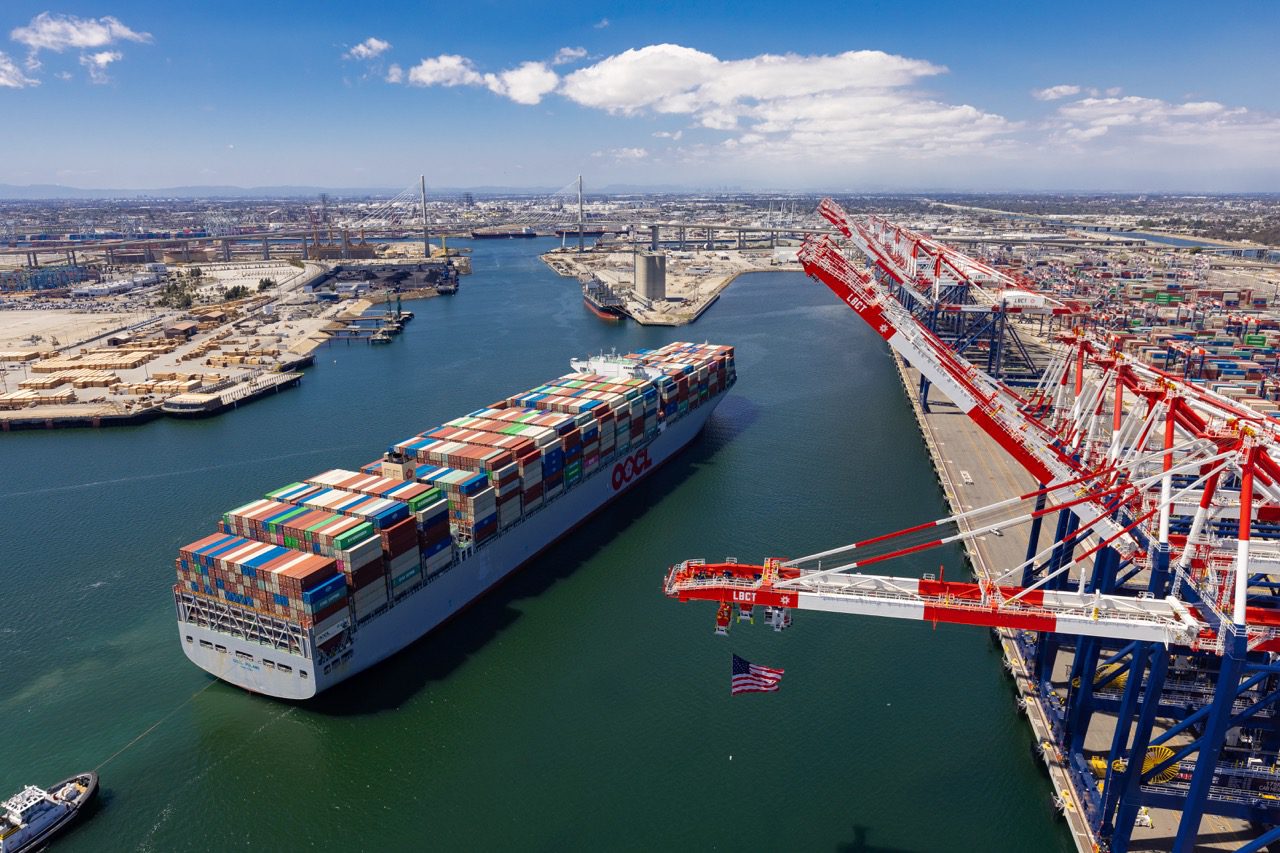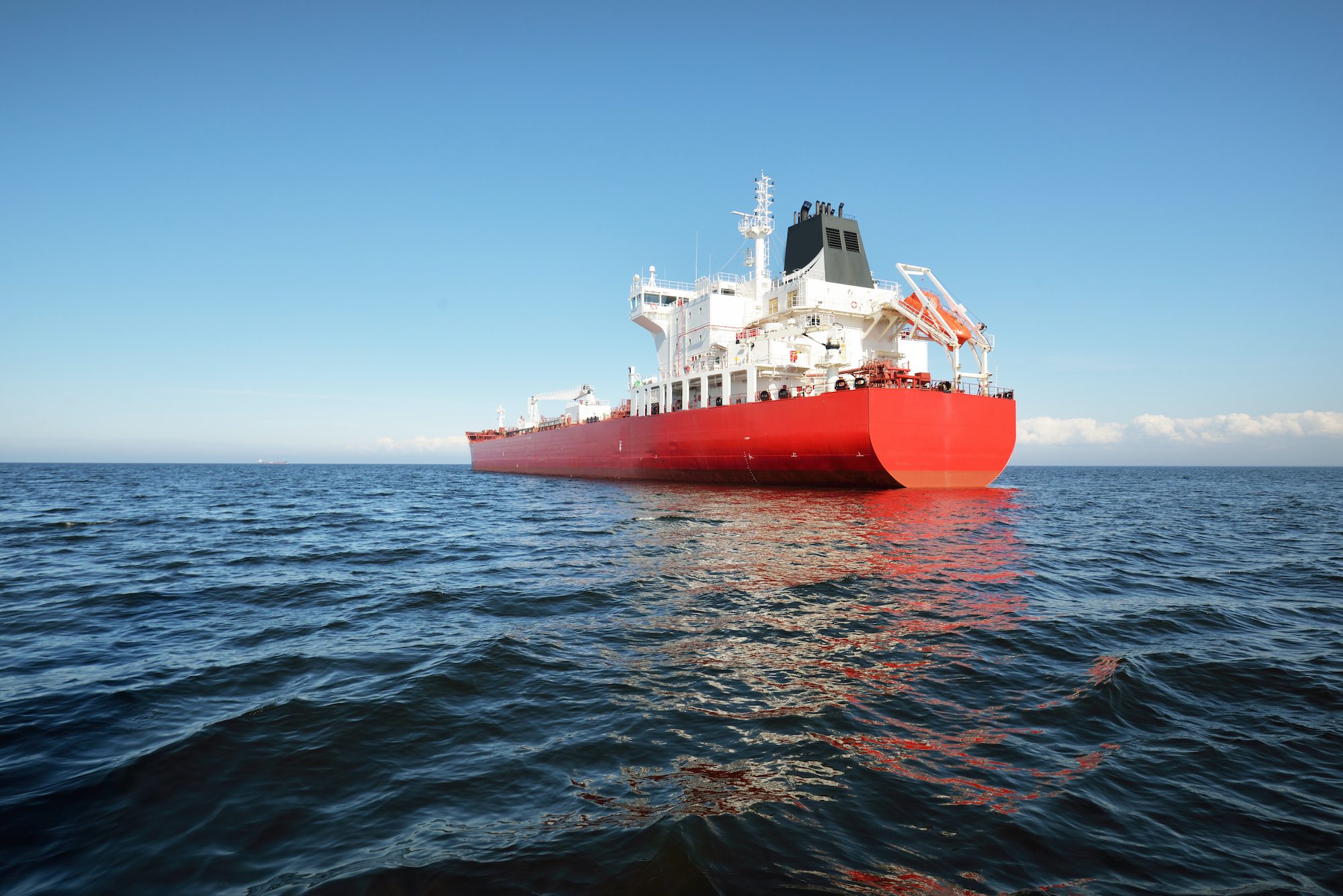The Olympic Ares multi-purpose offshore support vessel sits in the Pentland Firth, above the location of Atlantis Resources Ltd.’s Meygen tidal energy project off the coast of the island of Stroma, U.K., on Wednesday, March 22, 2017. Photographer: Chris Ratcliffe/Bloomberg
By Anna Hirtenstein
(Bloomberg) — A British developer is bidding to build power turbines under the sea in Scotland in a contest for government contracts that started Monday, aiming to prove for the first time that its technology is commercially viable.
Atlantis Resources Ltd. is among the companies vying for 290 million pounds ($363 million) of electricity-generation contracts the U.K. government is auctioning off. Winners will be notified between June and September and will get a firm price for the power they sell under a program meant to stimulate cleaner forms of energy.
If successful, the bid from Atlantis would signal that efforts to harness the energy of the oceans are starting to bear fruit, adding another alternative to the fossil fuels.
“Tidal power is what wind and solar were 15 years ago,” said Tim Cornelius, chief executive officer of the company with a market value of about 66 million pounds. “If you look at the relative starting time, we’re growing much faster.”
The company is up against offshore wind developers likely to bid in the auction, including EDP Renovaveis SA, Dong Energy A/S and Red Rock Power Ltd., which is owned by State Development & Investment Corp of China.
While wind turbines have become commonplace, machines that tap into tidal flows have mainly worked the experimental level and at a cost more than triple that of wind. To win in the U.K. auction against other technologies, the Atlantis turbines must reduce costs by almost 70 percent to roughly 100 pounds a megawatt-hour, within striking distance of the cost of nuclear and offshore wind.

A victory for Atlantis would be a step toward unlocking the vast potential of marine energy, which the British government has said could supply a fifth of the nation’s electricity. The company is hoping Prime Minister Theresa May’s government will see the benefit of more diverse energy supplies and help home-grown industry build export capabilities as it leaves the European Union.
“Innovation in clean energy is a key part of our industrial strategy and we are building export potential to support British manufacturing and service companies,” said an official at the government’s Department for Business, Energy and Industrial Strategy.
Export Industry
Atlantis envisions the power-supply contract stimulating investment in a 100 million-pound manufacturing plant in Scotland, which would help it grab contracts it’s seeking from France to South Korea and Indonesia. That would help Scotland realize its ambition to turn itself into a Saudi Arabia of green energy.
“Atlantis is the leader in this industry,” said Gurpreet Gujral, an equity analyst at Macquarie Bank Ltd. “They have a good chance of bringing down their costs. There’s enough of a technology roadmap for them to compete in these auctions.”
The company is planning to install as many as 269 turbines under the Pentland Firth, a straight of water linking the Atlantic Ocean to the North Sea. The 20-mile long, eight-mile wide waterway separates the northern tip of Scotland from the Orkney Islands, with waters flowing through at a steady 10 feet per second.
Atlantis’s project, dubbed “MeyGen” after a castle in the Scottish highlands, would be built in three phases. The first four turbines generating 6 megawatts are working now. The second will add three turbines and another 6 megawatts after financing is completed this summer. The third would bring capacity of the unit to 86 megawatts.
Cornelius envisions that the project will be 398 megawatts upon completion in the early 2020s, on par with a typical offshore wind farm in the North Sea.
Other marine-energy technologies such as wave power and ocean thermal are still in their infancy, with developers building prototypes and small-scale demonstration projects. Developers backed by utilities such as EON SE, Scottish Power Ltd. and Iberdrola SA have worked on projects such as snake-like generators that bob with waves but haven’t managed a commercial-scale development yet.
Cautious Outlook
Bloomberg New Energy Finance estimates that there may be 87 megawatts of tidal stream turbines operating by the end of the decade and has cut its projections twice, according to Angus McCrone, a senior analyst for the research group.
“I’m not skeptical that cost reductions can be made and they can be big, but I’m a bit skeptical about cost reductions being made in time,” for today’s auction, McCrone said. “There hasn’t been enough time to learn from projects in the water to bring about these huge reductions.”
Atlantis anticipates that mass-producing the machines in a factory due to open by 2019 would help slash costs of the machines that are now hand-crafted.
If costs can be contained, the industry’s potential is enormous. Ocean Energy Systems, an organization affiliated with the International Energy Agency, estimates that movement in the planet’s waters could generate 300 gigawatts of electricity by 2050 if harnessed properly. That’s the equivalent of 250 nuclear reactors.
Scottish authorities long have harbored bigger ambitions. Seven years ago, then First Minister Alex Salmond said wind and marine energy could turn Scotland into a “ Saudi Arabia of renewables” and employ more than 20,000.
“It’ll be a huge challenge,” said David Collier, a project manager for Atlantis who has spent the past seven years scrutinizing every detail of their supply chain. “I think we can do it. Water is 800 times denser than air, so we can make our turbines much smaller than ones used for wind energy.”
© 2017 Bloomberg L.P

 Join The Club
Join The Club











